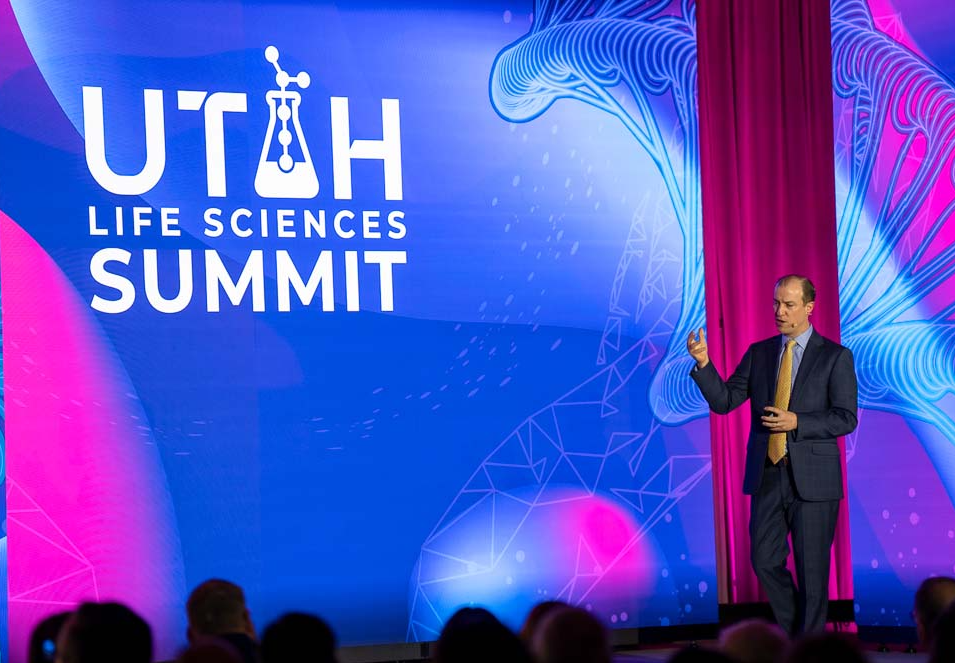

Salt Lake City, Utah - November 12, 2025
The 2025 Mayer Brown Utah Life Sciences Summit brought industry leaders, researchers, investors, and policymakers to the Hilton Salt Lake City Center on November 12 for a candid look at the forces reshaping healthcare in Utah and beyond. AI-driven clinical work, national security concerns, regulatory shifts, and the state’s medical-talent pipeline emerged as defining themes.
AI Moves From Concept to Workforce
Intermountain Healthcare Executive Director and Cambridge Fellow Carter Dredge opened the event with a blunt demonstration of how fast AI is moving. His team uploaded his 180-page doctoral dissertation into Notebook LM, which produced a convincing 15-minute podcast summarizing the work in minutes.
“They nailed the content,” he said. His takeaway for the room: the pace of AI advancement is non-negotiable. “If we think it is business as usual, we are wrong.”
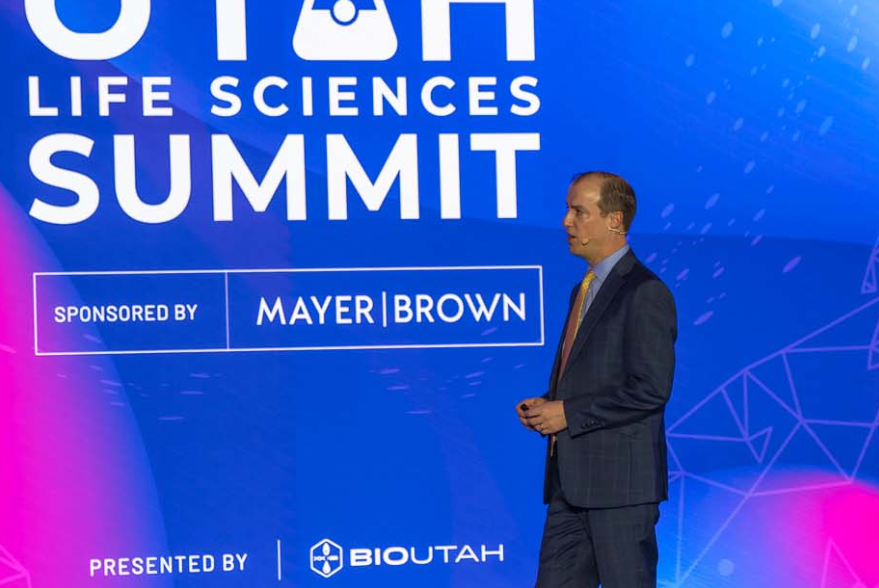
Dredge argued that healthcare can’t rely on traditional hiring or training cycles to meet demand. Even if Intermountain hired every graduating physician in its service area, he said, the system would still be “thousands short.” The industry’s cost structure doesn’t help—bringing a new drug to market now averages more than $2.5 billion, and shortages persist.
Despite the heavy regulation around healthcare, he noted that AI adoption is already accelerating faster in healthcare than in most industries, with ambient scribing, coding, and billing leading the way. The time saved on documentation is proving to be a turning point for clinicians. He highlighted WiseCareAI, a Utah startup using agentic AI to guide consumers through health insurance selection—a process he called “needlessly complicated.”
Dredge’s prediction: digital labor will scale far faster than human labor, and successful systems will be “AI-operated, human-led.”
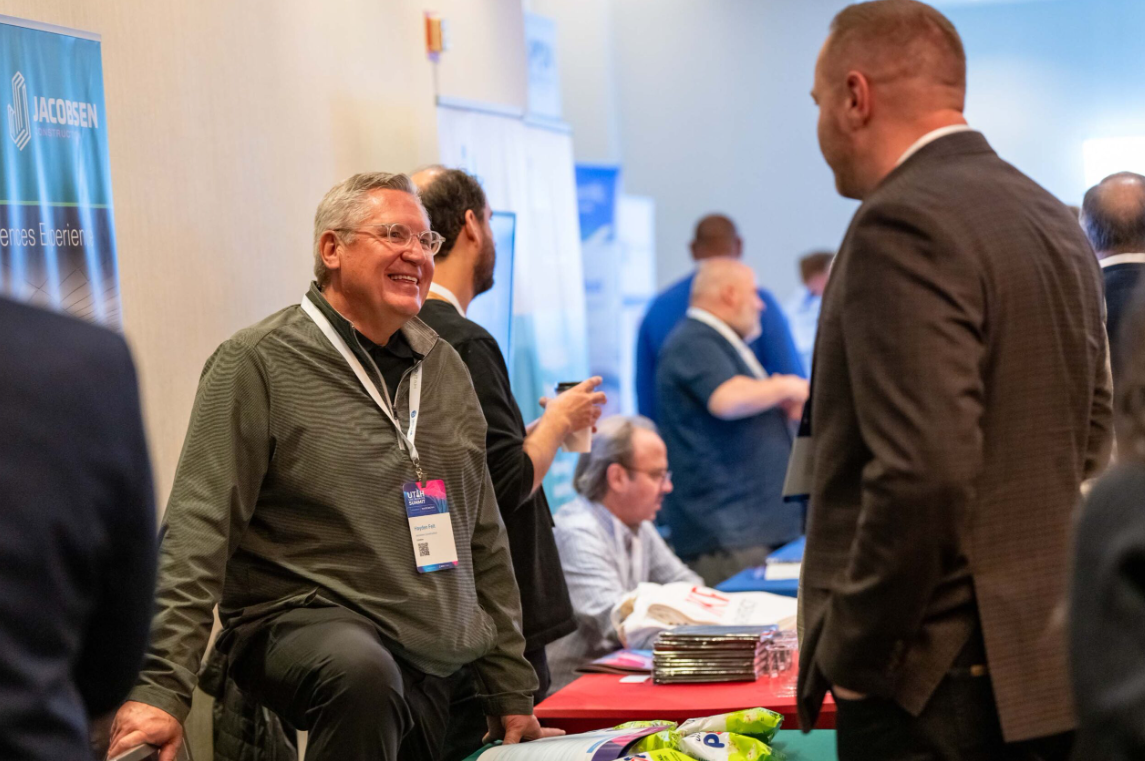
Regulation and Oversight
Regulatory topics took center stage in a session with FTC Commissioner Melissa Holyoak, a Utah native. Holyoak addressed non-compete regulations, pharmacy benefit managers, and the agency’s scrutiny of mergers and acquisitions. While the FTC maintains strict oversight, she underscored that most deals are ultimately pro-competitive and likely to move forward—reassuring for Utah’s active biotech M&A environment.

Building Utah’s Medical Workforce
A panel moderated by Halia Therapeutics CEO David Bearss explored the future of Utah’s clinician pipeline with Bob Carter, CEO of University of Utah Health, and Mark Ott, dean of BYU’s new medical school set to open in 2026.
Both emphasized the need to grow and retain medical talent in-state. Carter cited data showing that medical students who complete both medical school and residency in the same state stay long-term at roughly 80% rates. Increasing residency slots, he argued, is essential if Utah wants to address its widening primary care shortages.
Ott outlined a more ambitious concept: statewide genomic sequencing for high school students. He believes early knowledge of genetic risk could drive lifelong prevention and targeted screening. “Utah has both the resources and willpower to do it,” he said.
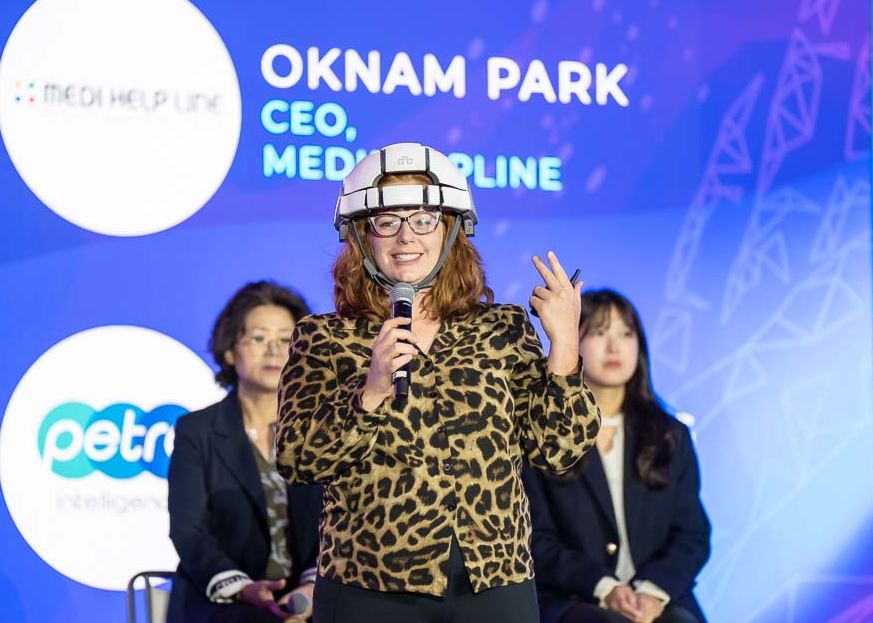
National Security and Biotech
Speakers from Danaher Corporation and the National Security Commission on Emerging Biotechnology examined supply-chain vulnerabilities, biosecurity threats, and the geopolitical implications of accelerating biotech innovation. The discussion underscored the rising intersection of national security and life sciences—a trend Utah companies increasingly face as they scale.
Recognizing Industry Leaders
BioUtah closed the summit with its annual Life Sciences Awards:
- Entrepreneur of the Year: Shawn Fojtik, CEO, Distal Access
- Executive of the Year: Fred Lampropoulos, Executive Chairman, Merit Medical Systems
- Innovation Impact Award: Nusano
- Friend of the Industry: Taylor Randall, President, University of Utah
- Lifetime Achievement: Wesley Sundquist, Samuels Professor and Co-Chair, Department of Biochemistry, University of Utah
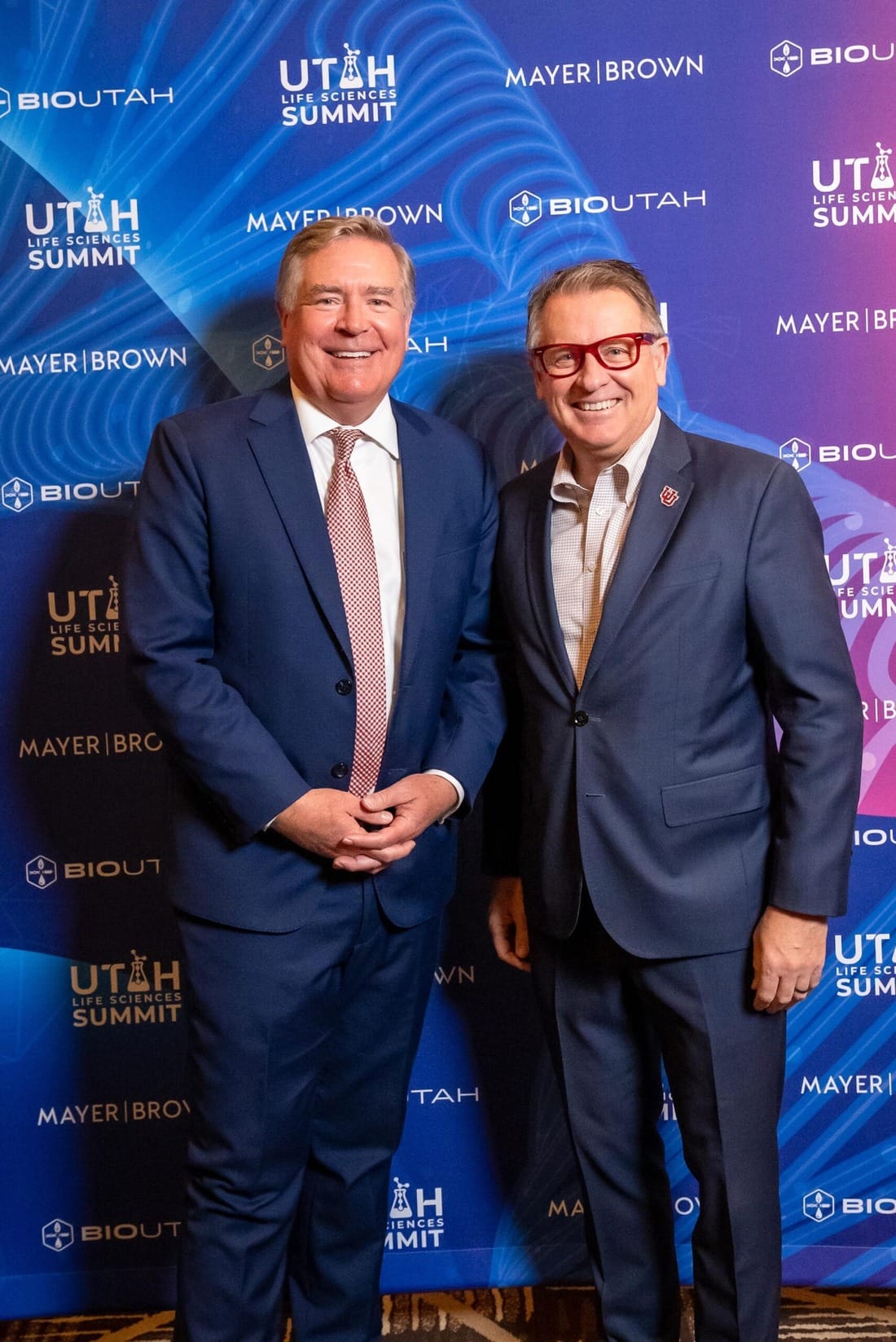
A State Positioning Itself for National Influence
The summit made one trend unmistakable: Utah is pushing to become a national model for healthcare innovation. With BYU’s medical school coming online, the University of Utah expanding clinical training, and Utah startups deploying AI into patient-facing applications, the state is aligning talent, technology, and policy at a moment when healthcare is undergoing structural change.
Utah’s life sciences community left the summit with a clear mandate: scale innovation, fix workforce shortages, and position the state as a proving ground for the future of healthcare.
Learn more at utahlifesciencessummit.com.


